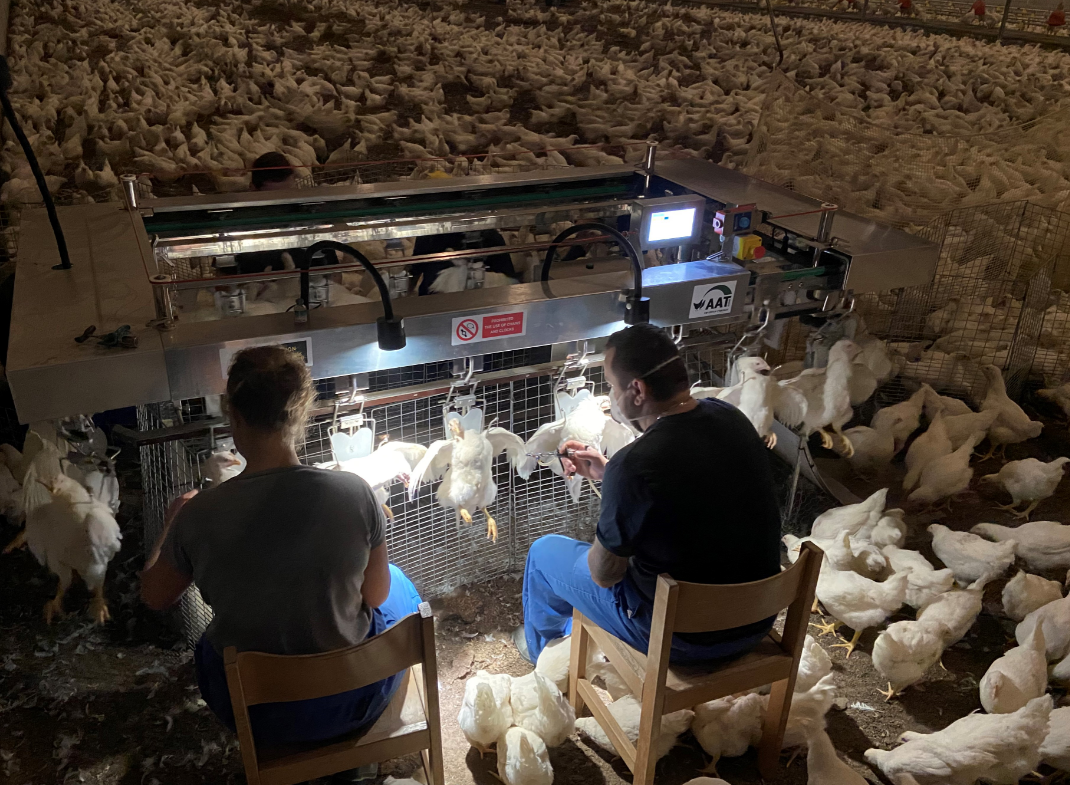



Performance boost through automated grading of breeder birds with GRADY 3000 from AAT
Within breeder birds, there is always a natural variation of bodyweight, even at day-old. Usually it should be quite low variation at placement (bird quality). When the birds grow, the variation within a flock will increase further due to the different responses of individual birds to factors such as vaccination, disease, differing competitiveness for food, etc. This increased variation reduces overall flock performance and makes flock management much more difficult.
Every rearing manager knows, that a uniform flock is much easier to manage than a variable one. Birds in similar physiological state will respond more uniform to management factors, and will be facing less competition – that is positive for the welfare of the individual bird `and the flock. The purpose of grading, therefore, is to sort the flock into 2 or 3 sub-populations of different average weights (physiological state) so that each group can be managed in a way that will result in good whole flock uniformity at the point of lay.
In all breeder handbooks from the breeding companies it is recommended to do grading between 23 and 28 days of age, if you only do one grading. In the European and North American market, grading is not yet very common, because there is not enough labor available to this work. Other markets like Latin America frequently grade their flocks (up to 5 times during the rearing period) with very good results in uniformity (>85%). It is well known in the business that grading has an effect on the uniformity and the performance. Hence labor should no longer be the limited reason not to do this work.
Agri Advanced Technologies GmbH therefore developed the GRADY 3000. This is a broiler breeder grading machine to make the grading process more efficient by automating the process. Only 4 people are needed to grade up to 3,000 birds per hour. Besides grading it is also possible to combine the process together with a vaccination procedure. This means much less stress for the birds because they only need to be handled once. With this machine the flock manager has the opportunity to grade flocks between 300g (0.66 Lbs) and 2.5 kg (5.5 Lbs), that means birds from 24 days of age until the end of the rearing period can be graded with the GRADY 3000. The flocks can be automatically sorted into 2 or 3 sub -populations, depending on the current flock uniformity.
“Doing the vaccination together with grading gives us a huge advantage during rearing, resulting in enhanced uniformity. As welfare is of utmost importance, handling the birds only once is also a major benefit. Of course our work force utilization benefits too,” Csaba Ferenczi, Production Manager, Aviagen KFT, stated. Aviagen KFT bought the first machine in autumn 2018 and they have four GRADY 3000 in operation today. “At first, we were a bit skeptical whether this equipment really could support our rearing program as we already had good uniformity results and we were in a fortunate position to have enough people for the work. But after we evaluated the machine in our operation we immediately saw the benefits and our staff immediately adapted to the way of working with the machine. What is important to know is that the machine is only a tool; you need to learn how to work with it and how to manage graded flocks. Grading only, with or without the GRADY 3000, does not give you better rearing results on its own.”








